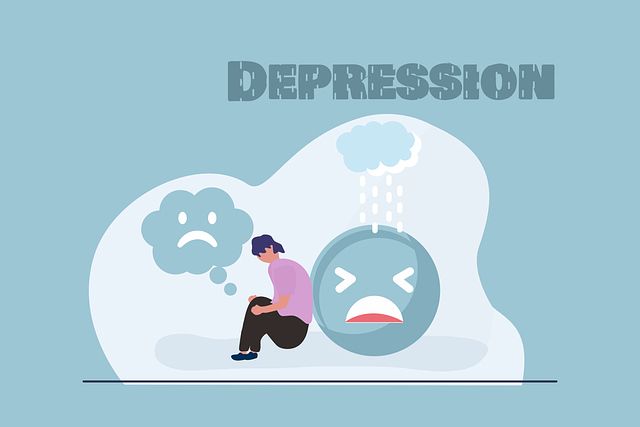Lafayette Bariatric Evaluations Therapy emphasizes the importance of comprehensive risk management planning in mental health practice, particularly for complex client scenarios. By proactively identifying and mitigating risks associated with intense emotional healing and stigma, therapists can implement effective strategies like self-care and stress management. Regular reviews, evidence-based approaches, and monitoring KPIs ensure adaptive care that enhances client outcomes and professional safety, setting high standards in mental health education and care.
Mental health professionals are continually navigating complex risks to ensure patient safety. Effective risk management planning is essential to mitigating potential harms in a field where emotional vulnerabilities are paramount. This article explores strategies for managing risk, drawing insights from Lafayette Bariatric Evaluations Therapy’s approach. We delve into understanding risk dynamics unique to mental health practice and discuss developing robust plans. Additionally, we highlight successful implementation of these strategies at Lafayette Bariatric Evaluations Therapy, offering valuable lessons for professionals seeking to enhance patient care.
- Understanding Risk in Mental Health Practice
- Developing a Comprehensive Risk Management Plan
- Implementing and Monitoring Strategies for Safe Care Delivery at Lafayette Bariatric Evaluations Therapy
Understanding Risk in Mental Health Practice

In mental health practice, understanding risk is paramount for professionals navigating complex client scenarios. Lafayette Bariatric Evaluations Therapy underscores this critical aspect, as various factors can contribute to a client’s vulnerability. Mental Health Policy Analysis and Advocacy emphasizes that risk assessment isn’t merely identifying potential hazards but also comprehending their interplay with individual, social, and environmental elements.
Effective crisis intervention requires professionals to anticipate and mitigate risks proactively. Crisis Intervention Guidance highlights the importance of regular evaluations to gauge clients’ emotional states and identify warning signs of distress, such as escalating depression symptoms or thoughts of self-harm. By integrating Depression Prevention strategies into risk management planning, mental health professionals can foster resilience and early interventions, ultimately enhancing client outcomes.
Developing a Comprehensive Risk Management Plan

Developing a comprehensive risk management plan is an integral part of the professional toolkit for mental health professionals. This involves a multifaceted approach to ensure the well-being and effectiveness of practitioners while navigating complex client scenarios. A robust plan includes identifying potential risks, such as those associated with intense emotional healing processes or managing complex cases of mental illness stigma reduction efforts. By proactively assessing these risks, therapists can implement strategies tailored to their practice, whether it’s integrating self-care practices into daily routines or adopting specific techniques for stress management during challenging Lafayette Bariatric Evaluations Therapy sessions.
The plan should be dynamic and adaptable, reflecting the evolving nature of mental health practice. Regular reviews and updates are essential to incorporate new research, clinical insights, and personal growth in emotional resilience. Through strategic risk mitigation, mental health professionals can create a safe and supportive environment for both themselves and their clients, fostering better outcomes and enhancing the overall quality of care delivered.
Implementing and Monitoring Strategies for Safe Care Delivery at Lafayette Bariatric Evaluations Therapy

At Lafayette Bariatric Evaluations Therapy, effective risk management planning involves a multi-faceted approach to ensure safe care delivery. This includes implementing evidence-based strategies tailored to address unique challenges faced by mental health professionals in a specialized bariatric setting. A robust system for monitoring and evaluating these strategies is paramount. By tracking key performance indicators (KPIs) and patient outcomes, the therapy center can assess the effectiveness of its risk mitigation measures.
Regular reviews and adjustments are crucial to adapt to evolving clinical needs and research findings. This proactive monitoring facilitates the identification of areas needing improvement, be it enhancing coping skills development through specialized programs or implementing burnout prevention strategies for healthcare providers. Such continuous quality improvement ensures that Lafayette Bariatric Evaluations Therapy maintains high standards, promoting optimal mental health education and care for its patients.
Mental health professionals, like those at Lafayette Bariatric Evaluations Therapy, must prioritize risk management to ensure patient safety and deliver high-quality care. By understanding the unique risks inherent in their practice and developing a robust comprehensive risk management plan, therapists can create a secure environment. As demonstrated by Lafayette’s successful implementation of safe care delivery strategies, proactive measures significantly minimize potential hazards, fostering a positive therapeutic outcome for patients. This approach is vital to maintaining ethical standards and building trust within the mental health community.












